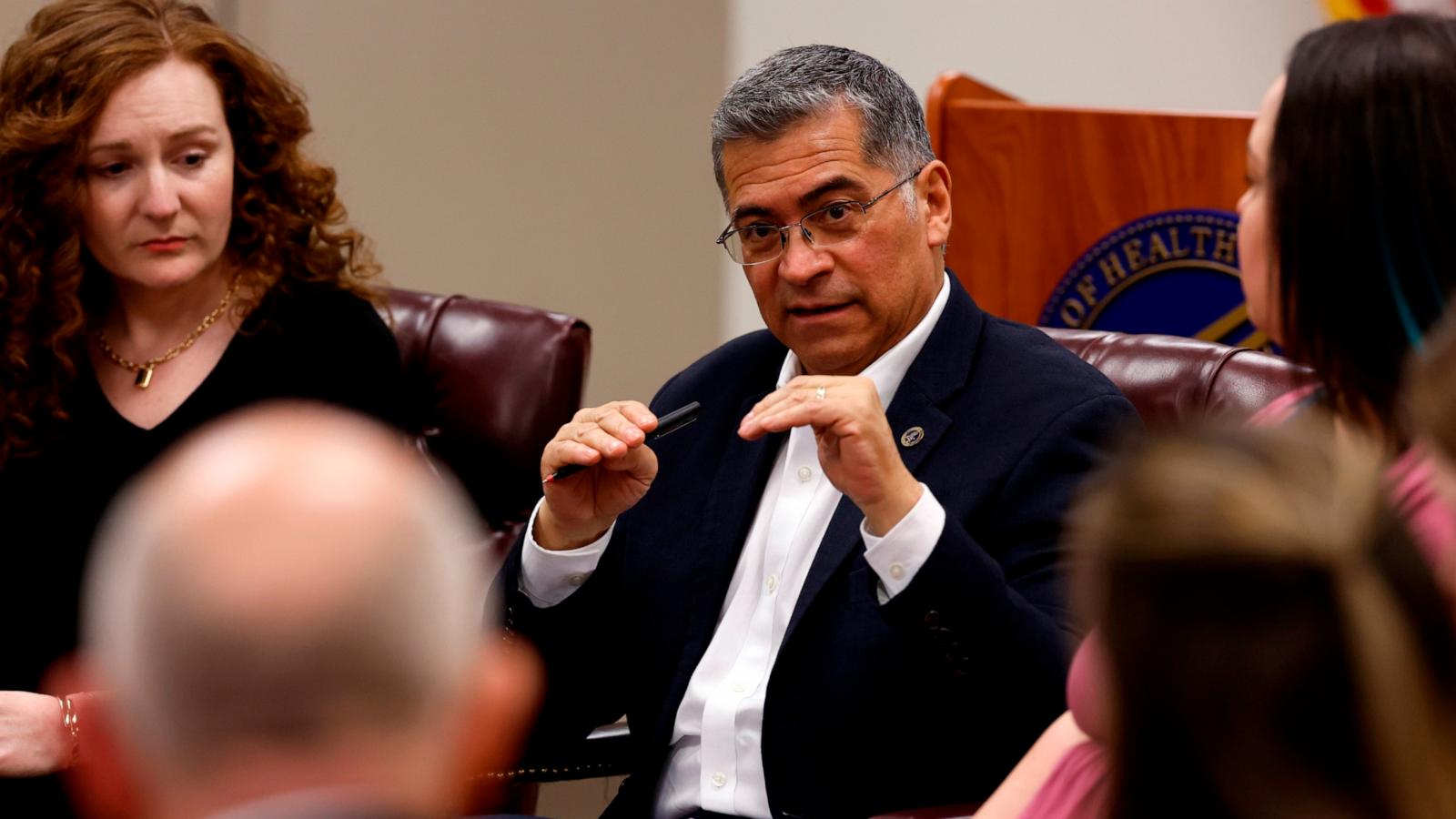
AFTER ALABAMA RULING UPENDS IVF, TOP HEALTH OFFICIAL WARNS OF MORE CONSEQUENCES
On the heels of meetings with women who had their in vitro fertilisation treatments halted in Alabama, Health and Human Services Secretary Xavier Becerra said on Tuesday that it's unclear how and "at what expense" the chaos wrought by a recent state Supreme Court decision will get resolved.
"All of this is unclear," Becerra, the first federal official on the ground in Alabama since the ruling, told ABC News in an exclusive interview.
"Because this is what happens when you take away rights that people had for 50 years -- now you find the consequences go way beyond just abortion," he argued, connecting the court case to the precedent set by the U.S. Supreme Court's decision to strike down Roe vs. Wade two years ago.
Becerra said he believed more states could not only start restricting IVF but access to other reproductive health care like birth control, too.
"Ask anyone who's going through the IVF process, has paid tens of thousands of dollars, and now can't move forward. Will the Dobbs decision [on Roe] have an impact on them beyond abortion? Of course," Becerra said.
Top Washington Republicans like Sen. Lindsey Graham are challenging that view as partisan hyperbole, calling it the "last thing" they want, but Becerra said there is too much uncertainty rippling out from the new decision.
"Will it now impact an effort to deny women and families the opportunity for contraception? You know, you just don't know," he said.
MORE: Alabama women describe heartbreak over some IVF treatments stopping following court ruling on embryosIn the Alabama ruling issued more than a week ago, the state's high court determined that embryos are "extrauterine children" under the law, opening the door to civil and potentially criminal lawsuits for anyone who handles them.
State law on the matter "is sweeping and unqualified. It applies to all children, born and unborn, without limitation," the majority of the justices wrote, also pointing to a related state constitutional amendment. "It is not the role of this Court to craft a new limitation based on our own view of what is or is not wise public policy."
Within a few days, roughly half of the state's IVF clinics paused treatment for fear that they could face wrongful death lawsuits -- or potentially criminal charges -- for discarding unused embryos, a routine part of IVF.
But nearly 10 days of public outcry from women and families who lost access to their IVF treatment spurred movement on Tuesday from the Republican-led Alabama Legislature, where a bill was introduced to carve out protections for fertility treatment and essentially amend the court's ruling.
Alabama Gov. Kay Ivey, a Republican, threw her support behind the bill.
"The Legislature is diligently working on addressing these issues as we speak, and I anticipate having a bill on my desk very shortly while ensuring that the Legislature has time to get this right," Ivey told reporters on Tuesday.
Dr. Brett Davenport has proceeded with IVF treatments at the Fertility Institute of North America in Huntsville, Alabama. He said he's been in touch with lawmakers and is hopeful the legislation will be passed within weeks.
"I understand the fear that is out there amongst other IVF patients and IVF practices. But that said, I think, you know, 95-plus percent of our entire country is on the same page on this," Davenport told ABC News.
To turn up the pressure on lawmakers and urge quick passage, advocates have planned a large gathering at the state Capitol on Wednesday.
Organizers predicted there could be hundreds of people -- including doctors and IVF patients -- traveling to Montgomery to protest the state Supreme Court decision and make their voices heard by the state Legislature.
Lochrane Chase, an IVF patient in Birmingham, Alabama, who said she had her treatment paused just before she was about to undergo her third attempt at a successful embryo transfer, plans to drive over an hour to attend the rally with a friend who is also going through IVF.
"My hope is that there will be enough positive direction from the Legislature that my clinic and other clinics in the state will have the confidence to move forward with all IVF procedures without fear of repercussion," she said.
Unpacking a box of medication at her home, including multiple injections that she will have to give herself daily, Chase said she's attending the rally because she feels like her representatives aren't taking her into consideration.
"It blows my mind that women who vote regularly, who want a family so badly, who are willing to spend $50,000 to $100,000 and take a shot every day -- that that's the demographic that they want to rile up ahead of November elections," Chase said.
At the federal level, Biden administration officials have yet to announce significant policy options to safeguard IVF access in Alabama, insisting that their options to use executive action to protect abortion and reproductive rights, including in ways that would keep IVF intact, are limited.
"'Stay tuned' is all I can tell you. Right now, we're listening. We're trying to hear what people are trying to tell us," Becerra said.
"We're trying to understand what the parameters of this Supreme Court decision are," he continued. "And we're trying to understand, at the federal level, what can we do to try to help families that are trying to move forward, who have now had not just their reproductive rights taken away but they've had the opportunity to have a child taken away."
To Chase, that impact has been clear.
"I'm within a 10-minute drive of my parents, all my cousins, my job and all my best friends," she said. "But if you told me that I had the opportunity to start a family in a state outside of Alabama, then I would move in a heartbeat."
2024-02-28T02:12:52Z dg43tfdfdgfd